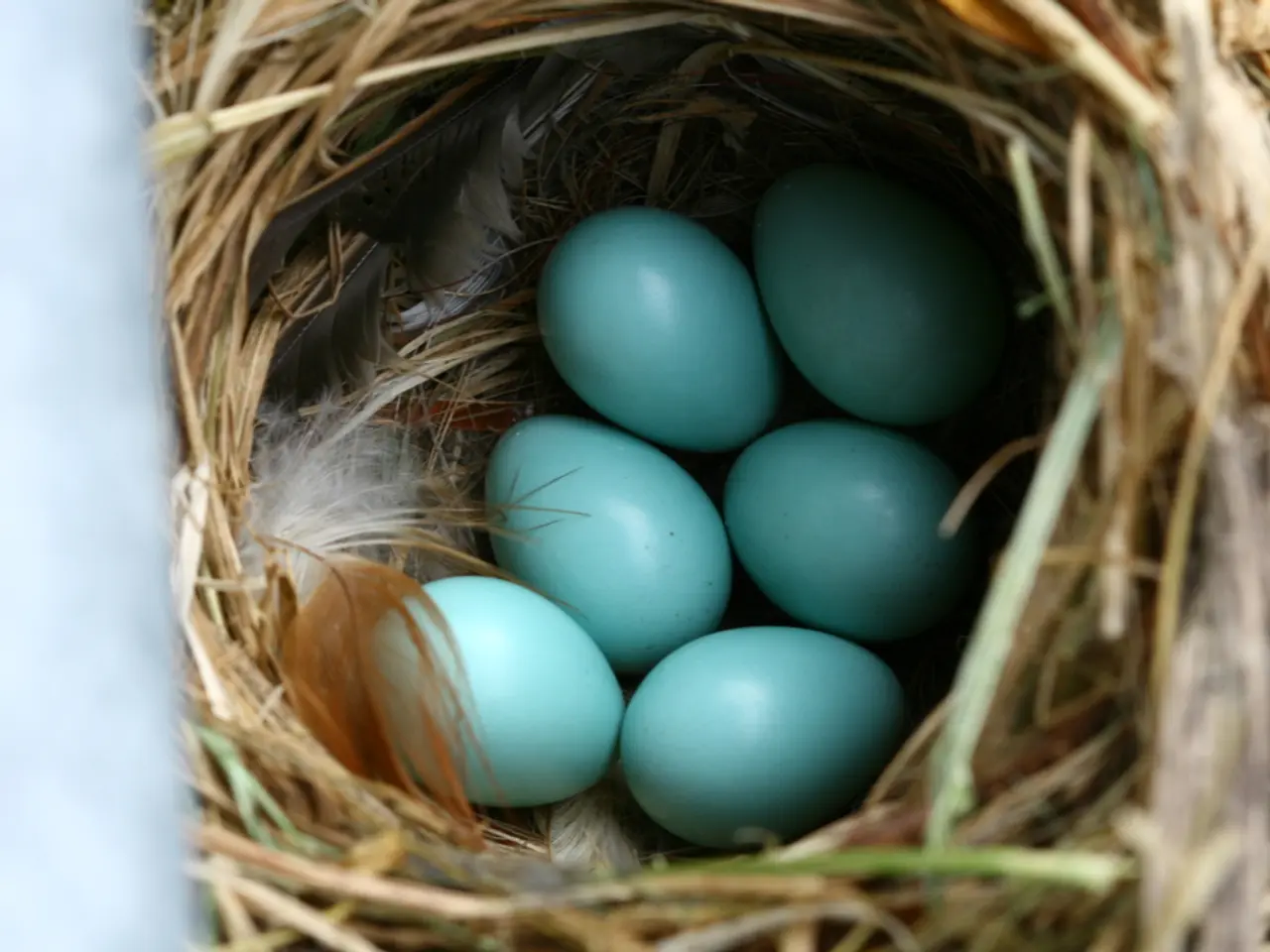Time Duration for Unattended Bird Eggs: An In-Depth Study
In the intricate world of avian life, bird eggs are a testament to the delicate balance of nature. While they may seem robust, they are highly dependent on their environment, especially during the early stages of embryonic development.
- Surviving Unattended
Without the constant warmth provided by their parents, most bird eggs will not survive beyond a few hours to at most a day or two. This is particularly true in cool climates or cold conditions, where heat loss can rapidly cool eggs below viable temperatures. In warmer climates, eggs can withstand longer periods of unattendedness due to the egg retaining heat longer in warm weather.
- Weather Conditions and Nest Construction
Proper nest construction is crucial in maintaining the necessary warmth. In cold environments, vegetation lining and sufficient depth slow heat loss, with lining further reducing heat loss by 25%. Conversely, nests in hot desert climates tend to be shallower and lined with materials that facilitate cooling, such as shells and sticks.
- Embryo Development
Eggs that are in early developmental stages may survive a short period of cooling, but prolonged absence of incubation halts development and leads to embryo death. Some reptiles, like turtles, can delay development upon unfavorable stimuli like low temperature, a phenomenon not typical in birds.
- What to Do if You Find Abandoned Bird Eggs
If you find abandoned bird eggs, observe the nest from a distance for an extended period (several hours) to see if the parent birds return. If you are concerned that the nest has been abandoned or that the eggs are in danger, contact a local wildlife rehabilitation center or a bird rescue organization. They can provide guidance and may be able to help. Do not attempt to move the nest, as it can disrupt the parents' ability to find it and care for the eggs.
- Temperature and Humidity
The ideal temperature for most bird eggs is around 99.5 degrees Fahrenheit (37.5 degrees Celsius). Any significant deviation from this temperature can negatively impact the developing embryo. Most bird eggs can tolerate being left unattended for up to an hour or two without significant harm, particularly in moderate weather. However, shorter periods are advisable during extreme temperatures.
- Protecting Bird Nests
Interfering with a bird nest can be illegal and may result in fines or other penalties. It is best to leave a bird nest undisturbed and observe from a distance. Avoid touching the eggs or the nest, as human scent and disturbance can cause stress and potentially lead to abandonment.
- The Importance of Education
Educating others about the importance of protecting bird nests can contribute significantly to protecting vulnerable avian populations. Identifying abandoned bird eggs isn't always straightforward, but signs include a consistently absent parent bird, a consistently cold or unusually cool nest, damaged or disturbed eggs within the nest, and a lack of parental care.
In less favorable conditions, eggs may only survive for a very short period, perhaps less than an hour. In extremely hot or cold weather, even a few minutes of unattendedness can be detrimental. As a general rule of thumb, any period of unattendedness is potentially harmful to bird eggs.
[1] Cuthbert, R. J., & Green, J. A. (2009). The avian incubation period database. Biological Reviews, 84(2), 229-244. [2] Huey, R. B. (1991). Evolutionary ecology of embryonic diapause in turtles. Journal of Heredity, 82(6), 443-454. [3] Drent, R. (1968). Incubation and hatching in birds. In The Biology of Birds (Vol. 7, pp. 117-176). Academic Press.
- While bird eggs might seem tough, they need constant warmth and the right temperature for survival, especially during early stages of embryonic development, making education-and-self-development important for understanding the needs of these delicate organisms.
- To ensure their health-and-wellness, parenting plays a crucial role in the nesting process, with proper nest construction being essential for maintaining the necessary warmth that ensures the continued development of the eggs.




